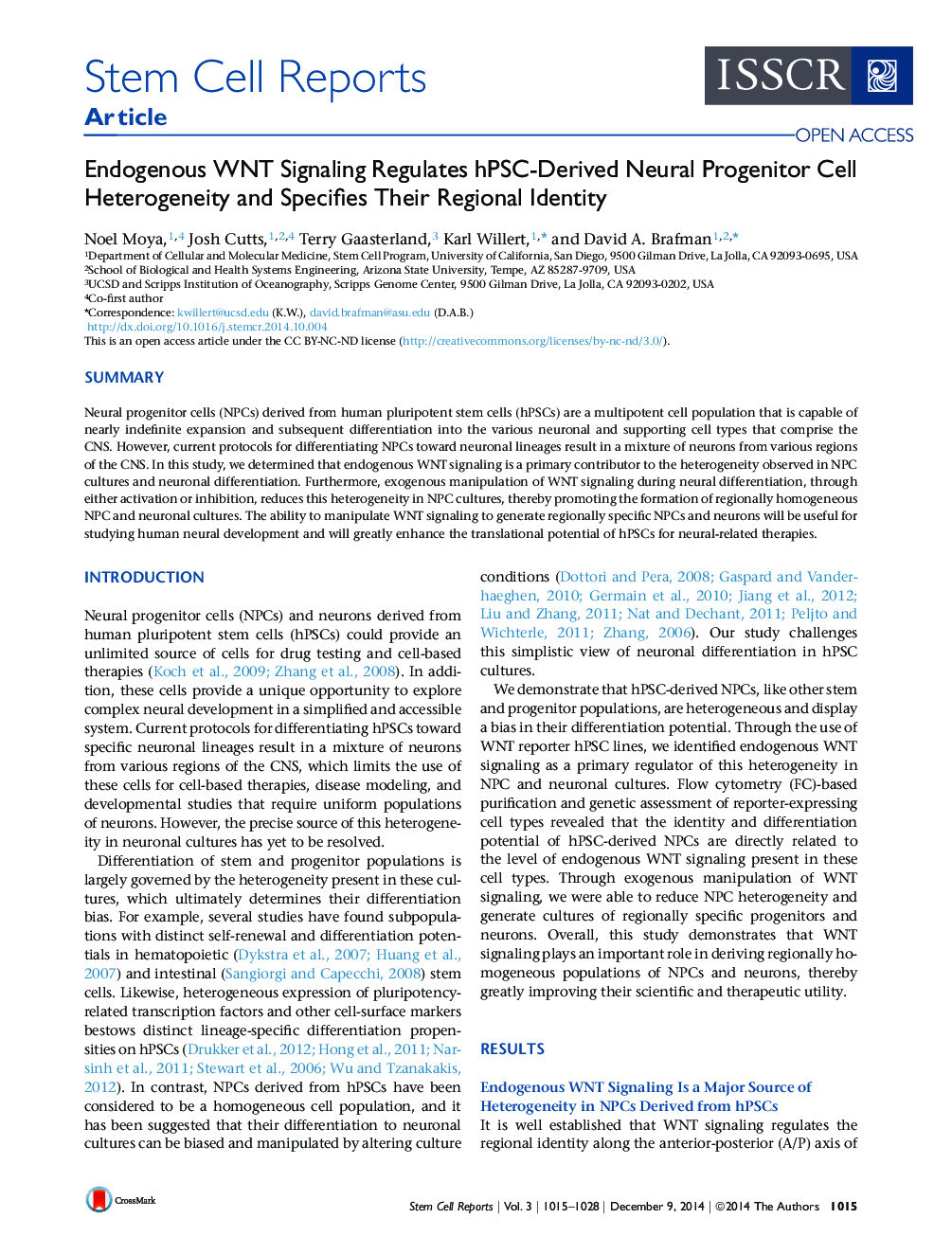| Article ID | Journal | Published Year | Pages | File Type |
|---|---|---|---|---|
| 2093681 | Stem Cell Reports | 2014 | 14 Pages |
•Heterogeneous endogenous WNT signaling regulates hPSC-derived neuronal diversity•Endogenous WNT signaling specifies the regional identity of hPSC-derived neurons•Exogenous WNT signaling leads to uniform neuronal cultures from hPSCs•Effects of WNT signaling on neurogenesis are recapitulated in an hPSC-based system
SummaryNeural progenitor cells (NPCs) derived from human pluripotent stem cells (hPSCs) are a multipotent cell population that is capable of nearly indefinite expansion and subsequent differentiation into the various neuronal and supporting cell types that comprise the CNS. However, current protocols for differentiating NPCs toward neuronal lineages result in a mixture of neurons from various regions of the CNS. In this study, we determined that endogenous WNT signaling is a primary contributor to the heterogeneity observed in NPC cultures and neuronal differentiation. Furthermore, exogenous manipulation of WNT signaling during neural differentiation, through either activation or inhibition, reduces this heterogeneity in NPC cultures, thereby promoting the formation of regionally homogeneous NPC and neuronal cultures. The ability to manipulate WNT signaling to generate regionally specific NPCs and neurons will be useful for studying human neural development and will greatly enhance the translational potential of hPSCs for neural-related therapies.
Graphical AbstractFigure optionsDownload full-size imageDownload as PowerPoint slide
